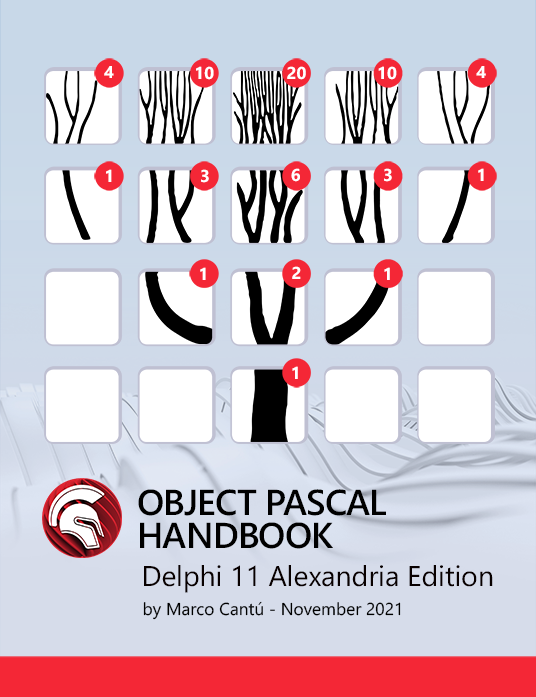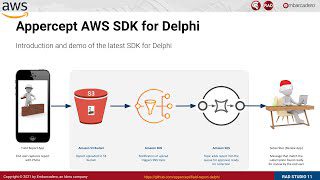
RAD Studio 11.2 offers the ability to install GetIt packages from a local file, without the need for the computer to be online. This is a new feature for which we are still working on the documentation (there is a YouTube video showing how to use it).
Leveraging this capability, Embarcadero is making available separate downloads (in the my.embarcadero.com customers portal) including some popular RAD Studio add-ons owned by the company and previously available only on the GetIt online platform. These downloads are available only for customers with an active subscription and are meant for customers who, for security reasons, have developer machines not connected to the Internet and unable to install GetIt packages. For anyone else, we recommend to keep using the equivalent GetIt package.
At this time, we are releasing two packages:
- Embarcadero General Packages Download for RAD Studio 11.2 (68 MB)
- FMXLinux Package Download for RAD Studio 11.2 (75 MB)
The General Packages Download includes:
- Radiant Shapes 1.5 for 11.2
- Konopka Controls (7.0) for 11.2
- BeaconFence (1.3) for 11.2
- Bookmarks 11 (1.6.3)
- Navigator 11 (1.6.3)
- Parallel Debugger 11 (1.0.3)
The FMXLinux Packages Download includes:
- FMX Linux 1.71
For a description of these packages, you can see getitnow.embarcadero.com or the product feature matrix. We are working on additional downloads with more core packages.
Installation
The download is a ZIP file containing the JSON configurations, the images, the EULAs, and the actual binaries of the GetIt packages listed above. Once you have downloaded it, uncompressing it in any folder.
In RAD Studio, Delphi, or C++Builder 11.2 open the GetIt Package Manager dialog. Use the “Load Local Package” button in the bottom left corner and select the JSON files matching the package you want to install from the list above (the actual file names are in a readme file, but they should be quite intuitive). Follow the steps, similar to a regular GetIt package installation. Repeat the process for other packages, restarting the IDE if required. Notice that the installation of local GetIt packages is available only for customers with an active subscription.
Below you can see the list of JSON configuration files for the packages in the General Download. This open dialog is triggered using the “Load Local Package” button at the bottom of the selector pane in the GetIt Package Manager dialog box. After picking one file, the installation proceeds like in the regular GetIt Package Manager scenario, but without downloading any information from the Internet: the configuration, the image, the license, and the actual content to be installed are all local.

Design. Code. Compile. Deploy.
Start Free Trial Upgrade Today
Free Delphi Community Edition Free C++Builder Community Edition






Is there any thought to documenting how we might be able to build our own GetIt packages using our own components for deployment within our company using something similar to this.
While we can go through the process using the package files, it might be nice to have a way of publishing our own GetIt packages (not sure how that would work so that they appear in the manager), and then install those from GetIt along with a few others which are our standard install…
We plan documenting the GetIt local packages format in detail, but that documentation (specifically the documentation for the 30 or so actions you can invoke when installing and uninstalling) is fairly complex and our doc team is still working on it. We should have it soon. This will enable anyone to write a personal (or company wide) local install, an install for components to share with others, or a configuration you can submit to us for inclusion in GetIt
Can we have an update on the status of the documentation? It seems like a great way of setting a group of developers up with the packages they need for a project.
Offline developers are drastically limited to install only 6 packages from the “General Packages”. Given that GetIt package system offers hundreds of packages available to download, is there a plan for providing the corresponding packages in offline mode ?
We’ll consider making more packages available online, but the process at this time is not automated and fairly complex.